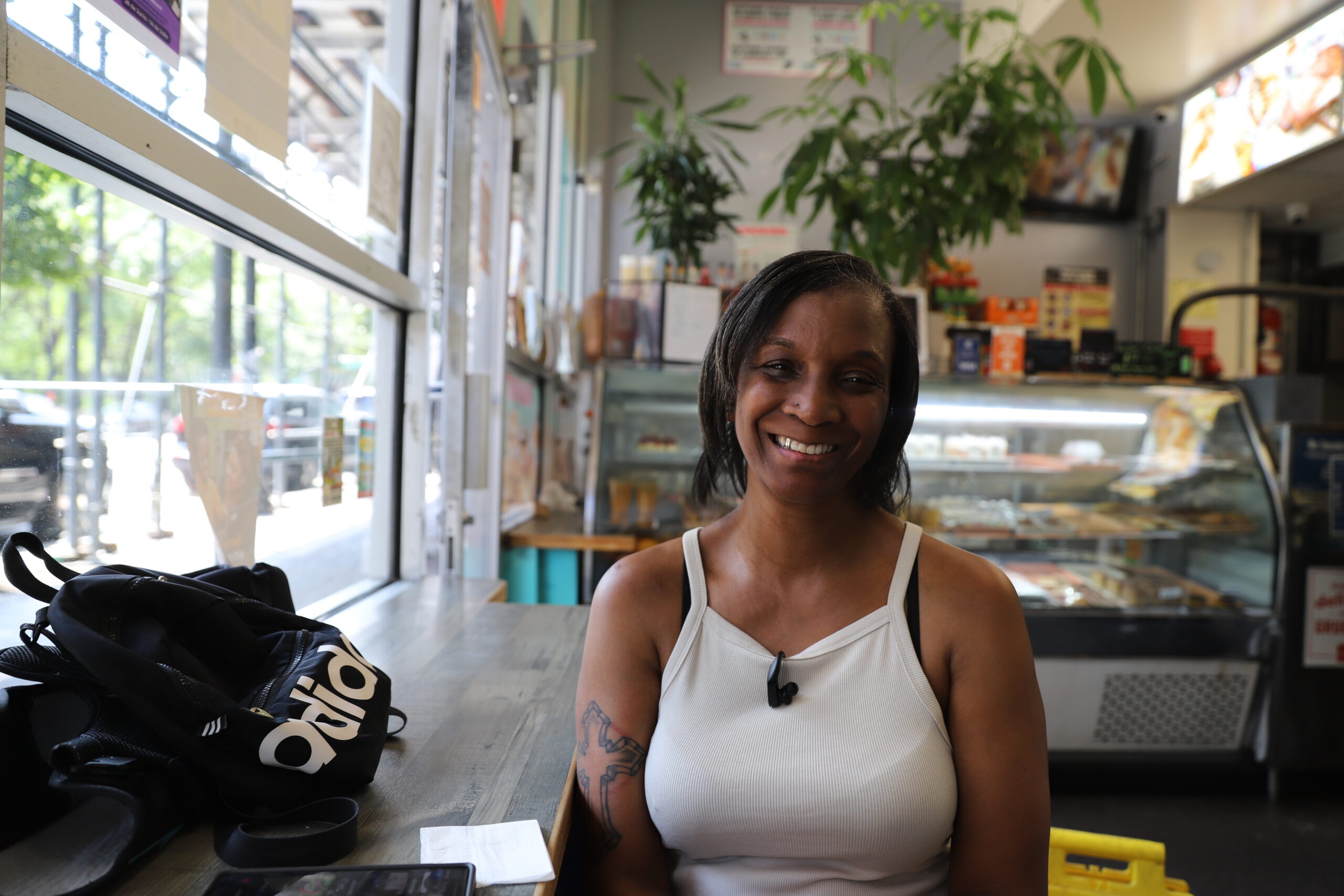Maria Prado remembers darker days when she lived underground.
Tall and slender with a short salt and pepper bob, Prado has made a big transition over the years, from subway tunnel dweller to the founder of a soon-to-open shelter for women in Mott Haven. Transitioning Forward will serve women experiencing homelessness, providing single room occupancy housing and a drop-in center for a population that has endured domestic violence, sexual abuse and human trafficking.
“Everyone is welcome,” said Prado, who is a state certified mental health aide. “As young as they come, as old as they come. No matter color, creed or religion. If you need help, you are welcome.”
For 20 years Prado, who is now 59, lived the life of a “mole person.” She was one of the thousands of homeless New Yorkers who find shelter beneath the city streets, in subway tunnels and subterranean caverns. She was 35 when she moved underground with seven people.
“Underground, we were a family, away from society. We had no responsibilities except to take care of each other.”
After completing high school in 1984, Prado moved to the city from Waterbury, Connecticut, in search of her biological mother, but she never found her. She began smoking crack, which led to addiction, then subsequently imprisonment and homelessness, and finally to a complete separation from society. Her makeshift home was in an old train station beneath Riverside Park.
“I would only come up for food. You could smell me before you could see me,” said Prado, who in 2008 decided to rejoin the outside world. This time, she stayed above ground.
But memories of the difficult times behind her linger on.
“I’ve been raped, I’ve been robbed,” she said. “I’ve been assaulted many times. It’s been quite a rollercoaster, but at the end of the day, I finally came to a conscious decision to get my life together. I said once I do get my life together, I’m going to reach back and try to help these women who really think that there’s nothing else but the streets.”
Melrose community organizer Ana Melendez-Ocasio, who founded an organization called DOT Strategies, is deeply familiar with the needs of the population Prado hopes to serve. DOT’s Facebook page says it works “within marginalized communities to provide support and services” for the community.
As an organization serving a vulnerable population, “We need to see what strengths we have as individuals, organizations and communities to bring to the table and help the whole Bronx,” said Melendez-Ocasio. However, she cautioned that without a 5-10 year plan in place, organizations such as the one Prado will soon lead will be left dealing with crises, and unable to set up the people it serves to succeed on their own in the long term.
Prado’s transformation from mole person to social rights leader started when she got sober, studied for undergraduate and masters degrees, then applied for her 501c3 nonprofit.
Since her application was approved, she has considered more than a dozen properties for the new shelter, but each time landlords refused to accept the rental vouchers the city provided, causing those deals to fall through. In other instances, the city’s financing commitment fell short of what was needed for programming and support.
But hopes were raised when she learned of a 15,000 square foot warehouse with capacity for up to 40 women and a staff of 15 in Mott Haven, that they are in the process of negotiating.
One Bronxite who has helped Prado with Transitioning Forward, said getting the public involved in the process is a key to creating supportive housing that the community accepts. Temporary housing with complementary supportive services has born the brunt of public criticism in Mott Haven in the past, from residents who argue that the neighborhood’s concentration of drug rehab clinics is disproportionately high compared with other parts of the Bronx.
“It brings us all together when we do events, it brings the community out,” said Lanita Jones, a housing activist and a district leader in Morrisania, who also volunteers for a local neighborhood safety initiative. “It’s networking and getting to know each other when we break and feed the community.”
Prado is not shy to discuss her history of incarceration and homelessness. She says an estimate that more than 5,000 women in the city are homeless and on their own, is low.
“There are many people who are couch surfing, crashing from house to house, couch to couch, hallways or the streets,” she said. “If I can make it, they can make it.”
The story was updated on Aug. 24 to clarify that a lease has not yet been finalized. An arrangement is still under negotiation with the landlord.

